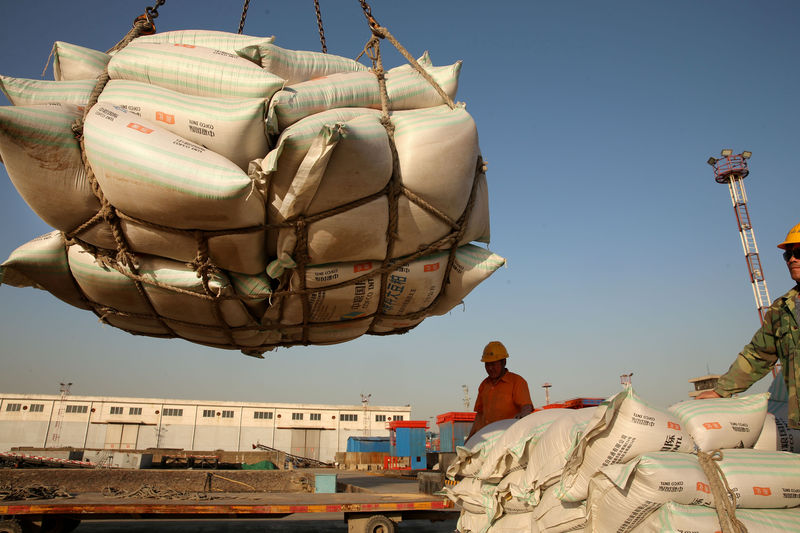By Hallie Gu and Dominique Patton
GUANGZHOU/BEIJING (Reuters) - A cargo of American soybeans booked in the hope it would be exempt from tariffs has been offloaded in China after about a one-week delay due to a dispute between the buyer and customs officials over duty payments, said two sources briefed on the matter.
The cargo, bought by state-owned Jiusan Group, had been sitting at a port in northeastern China for about a week after customs demanded payment of the 33% duties on U.S. soybeans, according to the two sources and another trader who has spoken to Jiusan about the matter.
The shipment was offloaded on Wednesday, said one of the sources.
"The beans are still under custody, and can not be crushed until after the company pays the (extra) tariffs," another source said.
Shi Yonge, General Manager of Jiusan Group, told Reuters on Thursday that the cargo has been offloaded.
"(We) will go by the contracts, and are going through certain procedures," Shi said, when asked about whether the company is paying the additional tariffs on the cargo.
China imposed a 25% extra tariff on U.S. soybeans last July in a tit-for-tat trade war between the world's top two economies. It has since increased the tariffs to 33% as the trade war intensified, bringing total tariffs to about 60 million yuan ($8.58 million) per cargo.
But Beijing has offered duty exemptions to some soybean crushers in recent months to encourage goodwill purchases during trade negotiations.
The government never made the details of these waivers public, however, as well as how to implement such waivers.
Jiusan's cargo is one of the first booked under the waiver system to arrive in China and is therefore being closely watched by other importers who are due to bring in cargoes in coming weeks, said the sources.
Two calls to Jiusan's marketing department which handles media queries went unanswered.
One of the sources is at a rival firm who has some U.S. cargoes due to arrive in late November and December. The other two sources have regular business with Jiusan. All declined to be identified because of the sensitivity of the matter.
Customs authorities in Dalian port asked Jiusan to pay the additional tariffs due on the cargo as a deposit and said they could be returned later upon authorization from Beijing, according to two of the sources.
Dalian customs declined to comment.
"Since local customs did not get an explicit policy on paper (about the change of tariffs) from above, they could only implement the most recent one, according to which tariffs on U.S. soybeans are 33%," said one of the sources.
Though only impacting a single cargo so far, the trade hiccup has stoked worries among other buyers of U.S. beans that they may face similar calls to make deposit payments when their cargoes arrive in the coming weeks.

"We are still waiting for further news on this. We might just not load the shipments," said one of the importers.